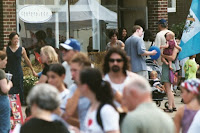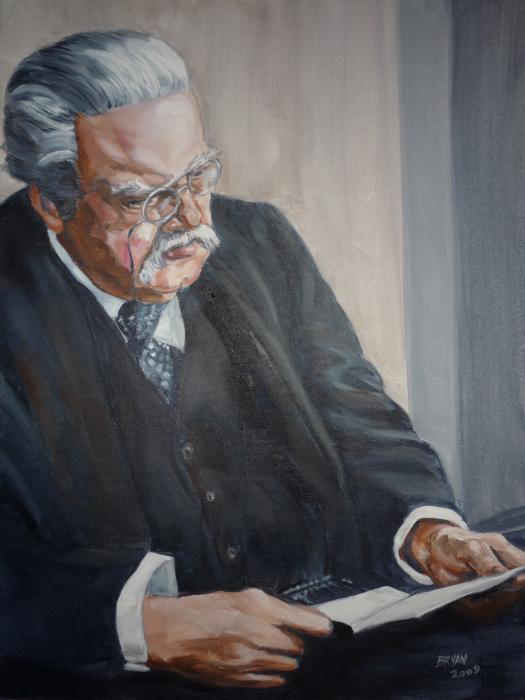 Guest post by Allison
Guest post by Allison
People who visit my town on a Saturday might think it’s a “Jewish town.” That is because a sizable number of residents are Orthodox Jews who observe the Sabbath, in part, by walking to synagogue. This town is extraordinarily diverse and includes graduate students, recent immigrants from China and Mexico, college professors and a generations-old African American community. But at a time when Americans talk about declining morals and values, my Orthodox Jewish neighbors are among those who have inspired my family to greater religious devotion to our Catholic faith.
My husband and I moved here fifteen years ago, drawn to the community’s strong public schools, its proximity to a train line into Manhattan and its walkability. The Catholic Church where we worship, for example, is an easy mile-and-a-half walk from our house. All the public schools are within walking distance of our home.
Our town has two Kosher Dunkin’ Donuts, a Kosher grocery store, a candy store and pizzeria. It is home to five Orthodox synagogues, as well as a Conservative synagogue and an egalitarian minyan. In our years here, we’ve been to more brises than baptisms, more Bar and Bat mitzvahs than Confirmations, and we have made more shiva visits than attended Catholic funerals.
Our immersion in Jewish culture has enriched our family’s own Catholicism. This is because our boys are growing up seeing examples every day of friends and neighbors who are open and enthusiastic about their faith and willing to make adjustments to their personal convenience for the sake of their own beliefs. This makes it much easier, for example, to take our children to church for Sunday Mass and for Holy Days of Obligation, to attend Vespers and Stations of the Cross, and to understand that faith sometimes requires us to forego temporary pleasures for greater spiritual benefits.
Learning more about Jewish traditions and cultures helps me understand Our Lord’s childhood and gives me a greater appreciation of Catholicism’s roots. Both faiths teach the importance of how we treat others.
Both of our next-door neighbors are married Orthodox Jewish couples. On one side are two retired public-school teachers whose three daughters all live in Israel. When Roger and his wife traveled to Israel to attend their sixth grandchild’s bris, he emailed me to ask if he could bring me back some religious objects.He offered to travel into the Old City of Jerusalem to purchase them. We were deeply moved when he returned to New Jersey with a beautiful crucifix and a statue of Saint Anthony of Padua.
On Saturday, while sitting in our bedroom during a rainstorm, I heard a huge crunching sound. I looked out our bedroom window to see that a mighty oak tree had fallen onto our next-door neighbor’s deck, pulling down power lines and narrowly missing their home. I realized that the young couple on the other side of us would not be able to call the police or the electric company. So I threw my clogs on and ran to their house in a panic.
Avi, who is in his midtwenties, opened his door with a big smile and let me in. “Do you need me to make a phone call?” I asked. “That would be great,” he said. What astonished me was the sense of calm that prevailed in that home. His wife was all smiles, as were the other couple visiting with their infant child. A massive tree had come within feet of hitting their home and yet they projected calm, not panic. “Aren’t you freaking out?” I asked Hava. “You seem so calm!” “Well,” she said, “this is what homeowners insurance is for.”
Their equanimity astonished me. I thought I knew its source, but I gave a call to a local rabbi to check. Rabbi Steven Miodownik leads Congregation Ahavas Achim, which served Central New Jersey Jews for more than 120 years. I don’t know if this couple are members of this particular synagogue, but I figured he might have some insight into why a devout couple could stay so calm after a near-tragedy.
“We teach the relative unimportance of possessions,” the rabbi told me. “We take with us to the next world the good deeds that we did. We don’t even take the socks on our feet. The attitude of mimimizing the physical probably contributed to that calm you saw. If it’s just sticks and stones, they had good reason not to be flipping out. This world is a temporary one. The next one is where we are heading.”
Once again, I saw parallels between Judaism and Catholicism. One piece of wisdom from my priest has stayed with me for years. During a homily about the transience of the material world, he cited an old Spanish proverb: “There are no pockets in a shroud.”












